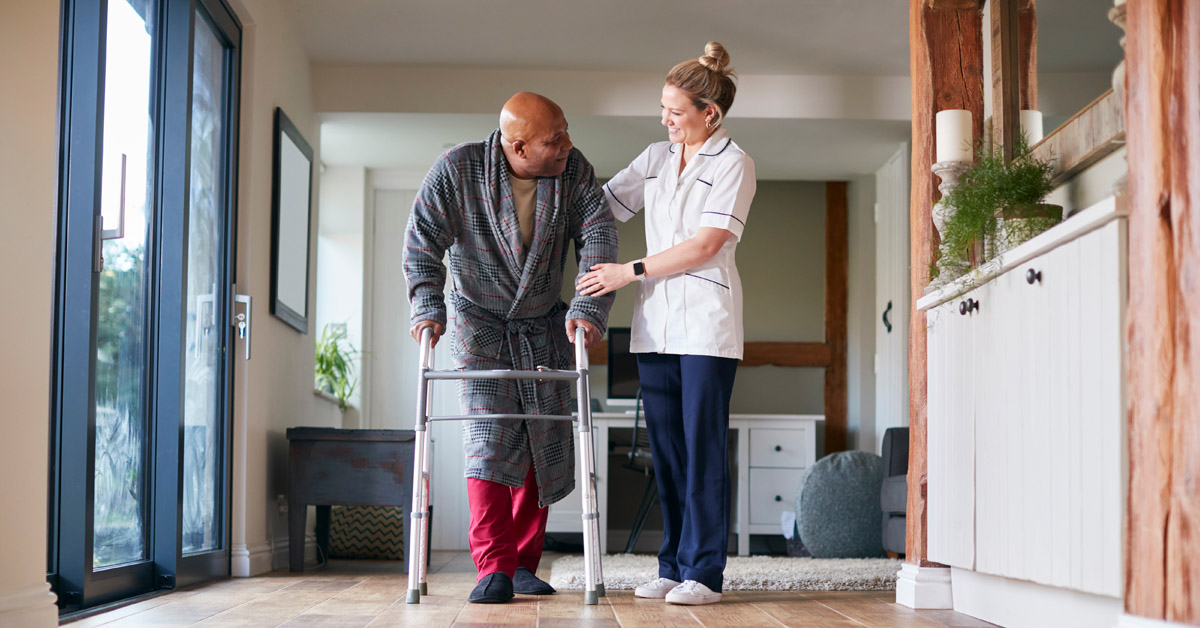
Researchers Find Black Patients Referred Less Often for Home Health Care
A new study found patients who are black were less likely to receive home health care after a hospital stay compared to patients of other races. About 22% of black patients are referred to home health care by discharge nurses, compared with 27% of white patients, according to a report published in the January issue of the journal Medical Care.
Abiola Keller, associate professor at Marquette University’s College of Nursing, looked at data from more than 14,000 Medicare patients at 31 hospitals in the U.S. After patients no longer require hospital-level care, a healthcare provider evaluates their readiness for discharge and assigns them a score. Keller stated that a comparison of these scores revealed no discrepancy in the assessment process. However, black patients needed to achieve a lower score than their white counterparts to have an equal chance of receiving a referral for home health care.
What is Readiness for Discharge Assessment?
As length of stay declines, the health care provider has less time to educate patients and families about home care and less time to coordinate services from home health and community agencies. As a result, many patients and families are discharged with unmet home care needs and are thus at an increased risk for complications and hospital readmissions.
Discharge readiness assessment is the evaluation of strengths and needs in five areas: physiologic stability, competency (cognitive and psychomotor) of the patient and family to carry out self-care management regimens, perceived self-efficacy to carry out self-care management regimens, availability of social support, and access to the health care system and community resources.1
Readiness for Discharge Assessment
Scores for readiness for discharge assessment were similar among racial and ethnic groups. For both black and white patients, the average readiness score was about 8.2 (on a scale of 0-10). Despite the differences in certain high-risk characteristics, black Medicare beneficiaries were less likely to be married, more likely to live alone, and had more chronic conditions than their white counterparts.
The difference in home health care referral between black and white patients was greatest for patients assessed as least ready for discharge, meaning a readiness score of 6 or less, home health care referral rate was 26% for black patients, compared to 33% for white patients. The researchers found that this raises concern that “the least ready and potentially most at-risk or sickest black patients are systematically under-referred for home health care services.”
Conclusion:
The study did not find the same type of disparity for Hispanic patients or other non-white patients. Keller said more research is needed to understand what factors are leading to these differences. But one factor could be the complicated history that African Americans have with the healthcare system.
References
- Titler MG, Pettit DM. Discharge readiness assessment. The Journal of Cardiovascular Nursing. 1995 Jul;9(4):64–74.
- Yakusheva O, Lee KA, Keller A, Weiss ME. Racial and Ethnic Disparities in Home Health Referral Among Adult Medicare Patients. Medical Care. 2024 Jan 1;62(1):21-9.
- Li J, Qi M, Werner RM. Assessment of receipt of the first home health care visit after hospital discharge among older adults. JAMA network open. 2020 Sep 1;3(9):e2015470-.






